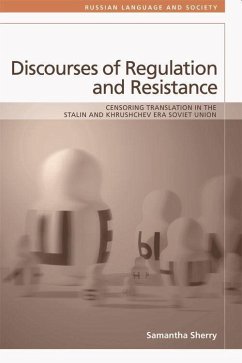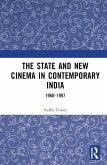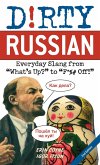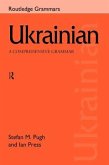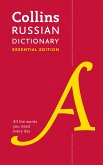Shows how the 'world culture' presented to Soviet citizens, a component of an educated and cultured person's identity, was distorted and manipulated through censorship. This book views Soviet censorship through the lens of contemporary Western theories. It features detailed case studies drawn from two major journals, and more.
RRussian Language and Society Series Editor: Lara Ryazanova-Clarke Books in this series examine the interrelationships between Russian language and society. As language is often a central issue within Russian culture, anthropology, history, politics and sociology, the series provides a forum for scholars across several disciplines to examine these issues and expand the field of Russian Studies. 'Discourses of Regulation and Resistance is a nuanced examination of the censorship of translated literature in Soviet Russia. Based on archival research, Sherry's study reveals Soviet censorship to be shifting, unevenly applied, and often internalized. The book makes a real contribution to the study of translation in totalitarian states.' Brian James Baer, Kent State University The first in depth study of the censorship of translated literature in the Soviet Union. Despite tense and often hostile relations between the USSR and the West, Soviet readers were voracious consumers of foreign culture and literature; the West was both a model for emulation and a potential threat. Discourses of Regulation and Resistance explores this ambivalent and contradictory attitude to the West and employs in depth analysis of original archival material, including translators' typescripts, internal reviews and correspondence between journals' editors' and the Party to offer a comprehensive study of the censorship of translated literature in the Soviet Union. Detailed case studies from two of the most important Soviet literary journals examine how editors and the authorities mediated and manipulated the image of the West, tracing debates and interventions in the publication process. Drawing upon material from Soviet archives, it shows how editors and translators tried to negotiate between their own ideals and the demands of Soviet ideology, combining censorship and resistance in a complex interplay of practices. As part of a new and growing body of work on translation as a cultural phenomenon, Discourses of Regulation and Resistance will make essential reading for students and scholars working in Translation Studies as well as cultural historians of Russia and the Soviet Union. Samantha Sherry is Leverhulme Early Career Fellow in Russian at the University of Oxford. Cover image: from the project Artconstitution, 2003, Alexander Sigutin. Used with the permission of the artist and S.ART (Petr Vois gallery). Cover design: [EUP logo] www.euppublishing.com
Hinweis: Dieser Artikel kann nur an eine deutsche Lieferadresse ausgeliefert werden.
RRussian Language and Society Series Editor: Lara Ryazanova-Clarke Books in this series examine the interrelationships between Russian language and society. As language is often a central issue within Russian culture, anthropology, history, politics and sociology, the series provides a forum for scholars across several disciplines to examine these issues and expand the field of Russian Studies. 'Discourses of Regulation and Resistance is a nuanced examination of the censorship of translated literature in Soviet Russia. Based on archival research, Sherry's study reveals Soviet censorship to be shifting, unevenly applied, and often internalized. The book makes a real contribution to the study of translation in totalitarian states.' Brian James Baer, Kent State University The first in depth study of the censorship of translated literature in the Soviet Union. Despite tense and often hostile relations between the USSR and the West, Soviet readers were voracious consumers of foreign culture and literature; the West was both a model for emulation and a potential threat. Discourses of Regulation and Resistance explores this ambivalent and contradictory attitude to the West and employs in depth analysis of original archival material, including translators' typescripts, internal reviews and correspondence between journals' editors' and the Party to offer a comprehensive study of the censorship of translated literature in the Soviet Union. Detailed case studies from two of the most important Soviet literary journals examine how editors and the authorities mediated and manipulated the image of the West, tracing debates and interventions in the publication process. Drawing upon material from Soviet archives, it shows how editors and translators tried to negotiate between their own ideals and the demands of Soviet ideology, combining censorship and resistance in a complex interplay of practices. As part of a new and growing body of work on translation as a cultural phenomenon, Discourses of Regulation and Resistance will make essential reading for students and scholars working in Translation Studies as well as cultural historians of Russia and the Soviet Union. Samantha Sherry is Leverhulme Early Career Fellow in Russian at the University of Oxford. Cover image: from the project Artconstitution, 2003, Alexander Sigutin. Used with the permission of the artist and S.ART (Petr Vois gallery). Cover design: [EUP logo] www.euppublishing.com
Hinweis: Dieser Artikel kann nur an eine deutsche Lieferadresse ausgeliefert werden.

